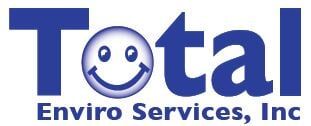Septic systems can work well for decades, processing thousands of gallons of wastewater, but they also have several key points that can cause problems if not well cared for. Whether you're a first-time septic owner or you've been living with your system for years and want to make sure it keeps working for years in the future, knowing how it works and what problems it's susceptible to can help you be a better septic system owner.
In fact, knowing how to care for your system and protect it from things that could harm it can save you a lot of money. Check out these four vulnerabilities that can cause problems for a septic tank if you're not careful.
1. Overhelmed System
If you've lived in homes with sewer service most of your life, you may not be used to thinking about the sheer volume of wastewater that you use in a given day. The sewer doesn't have a quota that you can't exceed. Your septic system, though, has a specific size and capacity, and putting an extra-high volume of waste into the system could cause problems.
If you know your septic system size and it's large enough for the number of people in your household, then you won't have to worry about overwhelming it most of the time. As long as you take basic precautions like diverting storm water away from the system, you'll only need to think about it if you have a lot of visitors staying overnight or if there's been heavy rainfall recently (which can reduce the leach field's ability to drain away water).
2. Chemicals
Bleach and other household cleaners can really harm your septic system. That's because your septic system’s treatment techniques utilize bacteria to break things down. Unfortunately, bleach doesn't just kill "bad" bacteria that are trying to make you sick, it kills any bacteria it finds indiscriminately. So don't use your septic system to dispose of extra cleaners, and don't use bleach on your toilet bowl too often.
3. Blockage
Blockages can damage drain lines or the leach field pipes alike. Whether they're from too much grease in the pipes (hint: don't put grease down the drain) or from tree roots filling the pipes, these blockages can cause cracking, leaking and even bursting, as well as keep the wastewater from making progress through the system.
You can also get blockages if your system hasn't been pumped for a long time and the solids in the tank have built up to the point where they're getting into the leach field pipes, which aren't designed to deal with solids.
If you suspect a blockage, you shouldn't just dump drain cleaner down the drain — especially since, as mentioned above, chemicals can be bad for the system. Instead, consider calling in a professional.
4. Compression
Compression of the soil in the drain field, otherwise known as the leach field, can be a big problem. That's because the soil needs to be fairly loose so that water can percolate through it. To respect this need, just be careful not to put any buildings, concrete slabs, vehicles or other large items in the leach field area.
On a related note, you should also avoid covering the ground in any way with anything non-porous in that area, such as a carport or a tarp, because some leach fields also use evaporation as part of the process.
Three of these four vulnerabilities are relatively specific to septic systems. But fortunately, if you protect your septic system from blockage, compression, overuse and chemicals, it's likely to last for decades. Call Total Enviro Services, Inc., today or contact them online to learn how they can help you care for your septic system.

